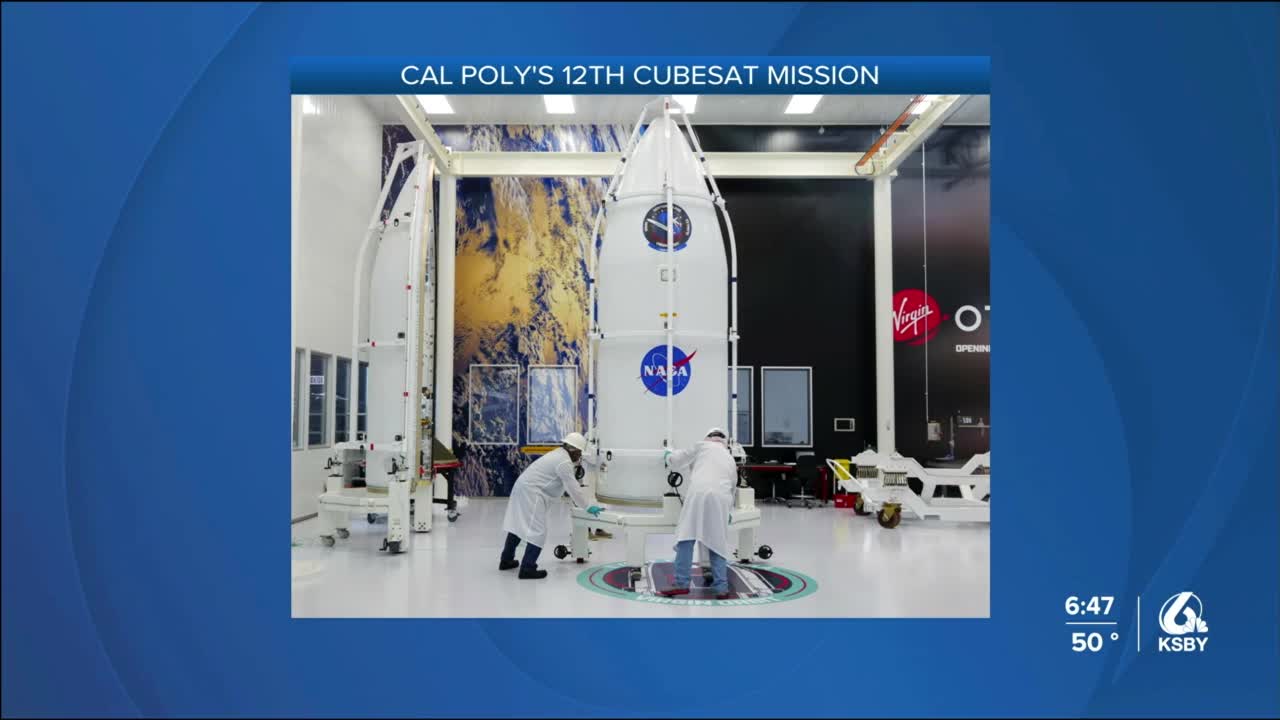A Cal Poly CubeSat will ride along aboard Virgin Orbit's LauncherOne rocket Wednesday morning on its second attempt to reach space.
The CubeSat is one of 10 small satellites NASA will include in its next Educational Launch of Nanosatellites (ELaNa) mission.
Virgin Orbit's rocket will be carried by a modified Boeing 747 to 35,000 feet before being released and fired into orbit.
That modified Boeing 747, named "Cosmic Girl", will take off from Mojave Air and Space Port between 7 a.m. and 10 a.m. Wednesday morning, with additional launch windows throughout January if need be.
The Cal Poly CubeSat — roughly the size of a loaf of bread and called ExoCube 2 — took several years to build by a group of 50 students.
"To execute the mission, NASA’s Goddard Space Flight Center developed a spectrometer, and the Cal Poly CubeSat Laboratory team was tasked to design, develop, manufacture, assemble and test the supporting elements of the spacecraft system," said Pauline Faure, Cal Poly aerospace engineering assistant professor and CubeSat advisor, in a press release from the school Monday. "Structure, power system, communication, flight software, etc. The students were definitely the driver of the project execution and deserve the full credit of the incredible work they achieved.”
Once the CubeSat achieves orbit, a team of students will use the CubeSat Lab on Cal Poly's campus to download data from the spacecraft and share it with similar teams at the University of Wisconsin and the University of Illinois.
NASA selected and sponsored Cal Poly and other college programs through the agency's CubeSat Launch Initiative.
Small satellites like the ExoCube 2 are relatively low-cost ways to conduct scientific investigations and technology demonstrations in space.
Cal Poly's last ELaNa satellite, the Launch Environment Observer, launched in June 2019 aboard a SpaceX Falcon Heavy rocket from Kennedy Space Center in Florida.

![virgin orbit[2].jpg](https://ewscripps.brightspotcdn.com/dims4/default/4a37fe5/2147483647/strip/true/crop/2560x1440+0+134/resize/1280x720!/quality/90/?url=http%3A%2F%2Fewscripps-brightspot.s3.amazonaws.com%2Ff9%2F53%2F352f97224755b61a4827e3fade33%2Fvirgin-orbit2.jpg)

